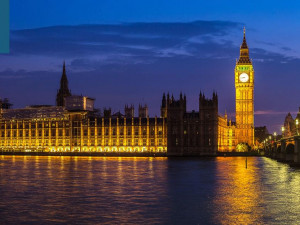
Bailey calls for restraint on bonuses
Morning mid-market rates – The majors
24th February: Highlights
- Accommodative policies and vaccinations add up to growth… but
- Jobless claims to hover around 250k
- Inflation alarms ringing ever louder
The City gravy train may slide to a halt
Yesterday, he continued in the same vein, but this time it was banks that were targeted. He called upon financial institutions to use restraint when deciding on the level of bonus payments.
He went on to say that the need for restraint applies to everyone, from care home workers to city bankers.
Testifying before the House of Commons Treasury Committee Bailey, who earns £575k a year told MPs, who rarely show restraint when awarding themselves inflation busting pay increases, that there is a real danger that inflation will remain at higher levels for far longer than had previously been expected.
Inflation reached 5.5% last month and is expected to peak at between 7.25% and 7.5% when household energy caps are raised in April.
Last month the MPC hiked rates by 0.25% to 0.5%, although there were four members of the committee who voted to hike by 0.50%.
This would have only been the second time since the MPC was formed in 1997 that such an increase was agreed.
Bailey insists that there is no disagreement within the MPC about how high rates should be raised, although the pace of the rises is in doubt.
Several MPC members made speeches yesterday, and each expressed strong views on inflation. Silvana Tenreyro expressed a view that rising energy and tradable goods prices imply that inflation will be resilient to rate hikes. She is unsure about the level of rate hikes that will be necessary to bring inflation back to the bank’s target of 2%.
Jonathan Haskell spoke of the risk that geopolitical events will have on inflation and the economy in general while his colleague Ben Broadbent agreed that further tightening will be necessary.
There has been little comment from MPC members about their voting intentions at the next MPC, although the hawks who voted for fifty basis points at the earlier meeting are likely to vote to hike again.
The financial markets are dominated by the situation in Ukraine for now, but the pound will also receive support from any hawkish comments from MPC members in the medium term.
Yesterday, the pound fell to a low of 1.3535 and closed at 1.3543. Overnight, as Vladimir Putin announced a military operation in Ukraine, the pound came under severe pressure, falling, so far, to 1.3486.
Considering your next transfer? Log in to compare live quotes today.
Fed actions will have greater effect in 2023
There will be further news on this throughout the day as condemnation of this unprovoked attack filters through.
The Federal Reserve has confirmed that it will begin to raise interest rates at its meeting next month to counter rising inflation. It has not confirmed whether it will hike by twenty-five or fifty basis points.
There are compelling arguments for both. Hawkish economists and some members of the FOMC believe that front loading the increase will supply the necessary impetus to markets to take seriously the Fed’s intentions. More dovish observers are becoming concerned that the Fed will stamp too hard on the brakes, leading the country into a recession.
No matter what the Fed does to combat inflation, it is doubtful that growth will be sufficiently affected to cause the economy to contract this year.
The collapse of growth as the pandemic took hold through 2020 and its recovery as vaccinations became available have been unprecedented events and global Central banks, not just the Fed, have been learning on the hoof.
It is now almost universally agreed that G7 Central banks didn’t take rising inflation seriously enough, at least in public, when prices began to rise. Supply side issues were always likely to be a concern as coordination became more difficult, with shortages of lorry drivers and ports became engulfed in a logjam.
Jerome Powell became fond of the term transitory. Only yesterday, Powell’s colleague at the Bank of England, Andrew Bailey, admitted that the term was overused and gave a false impression of Central Bank concerns.
Today will see the final cut of Q4 GDP data released. It is expected that growth will have reached 7% in the period from October to December. This is up from the latest estimate of 6.9%. While it may be a narrow escape, the risk is for the final number to beat that estimate and possibly reach 7.5%.
The dollar index rose to a high of 96.23 yesterday, closing at 96.20. Overnight as risk appetite has collapsed following events in Ukraine, it has rallied to a high so far of 96.76.
Inflation the only economic certainty
The single currency fell to a low of 1.1208, but most recently recovered to reach 1.1238.
It is difficult to estimate the full extent of the effect from any prolonged conflict on either the economy of Germany or the wider Eurozone.
Were a full-scale invasion to take place, the possibility of a more prolonged recession is a major consideration. It is already being predicted that Q1 will have seen a contraction.
Yesterday ECB Chief Economist Philip Lane commented that inflation is likely to remain higher for longer in the region and the Central Bank is currently revising its assessment of the duration of raised inflation.
With the average rate across the Eurozone having now reached 5%, Lane believes that it has reached its medium-term high.
He reiterated that prices are expected to fall naturally this year, by how fast and by how much still remains to be seen. Lane also mentioned his concerns over the effect that geopolitical events may have on the economy.
Two of Lane’s colleagues from the ECB Governing Council also spoke yesterday.
Slovenian Central bank Governor Bostjan Vasle believes that the time is approaching for the ECB to move monetary policy away from crisis mode. His views may have changed somewhat overnight.
Vasle was joined by Banco d ‘España Governor Pablo Hernandez de Cos, who commented that while policy decisions have had an effect on inflation, it would not be as high if the tensions in the energy markets were less severe.
There is no doubt that today the euro will be volatile and how long that volatility continues will depend on actions taken in Brussels, Berlin, Moscow, and Kiev.

About Alan Hill
Alan has been involved in the FX market for more than 25 years and brings a wealth of experience to his content. His knowledge has been gained while trading through some of the most volatile periods of recent history. His commentary relies on an understanding of past events and how they will affect future market performance.”



